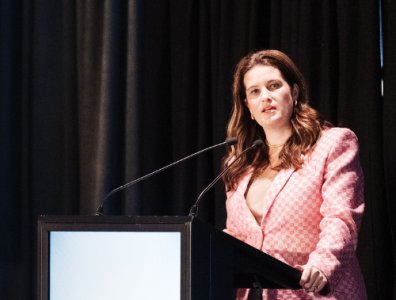Acting on evidence
Air New Zealand is using an evidence-based approach in its commitment to reach net-zero carbon emissions by 2050, says independent non-executive director Dean Bracewell MInstD.
The national carrier says flight NZ0 is its “most important journey yet” and is acutely aware of the need to continue to “connect Kiwis to the world and the world to us”.
“Air New Zealand has taken an evidence-based approach to decarbonisation,” says Bracewell. “Along with the 2050 net-zero emissions objective, the company is only one of eight airlines to have a science-based target.”
He says the science-based target serves as a guide to the company in its decarbonisation work.
“The target is very challenging and will require broad collaboration and support from stakeholders in New Zealand and globally. Air New Zealand only controls some of the levers needed to deliver the 2030 target.
“This approach has been tested by our expert panel and provides the board with increased assurance of the integrity of the strategy,” Bracewell says.
The whole board of Air New Zealand takes responsibility for the company’s climate response, he says, “and is committed to decarbonising its operations”.
It is helped by a “sound level of sustainability knowledge” around the board table. The board also draws on Air New Zealand’s independent Sustainability Advisory Panel. This panel includes New Zealand and international experts in climate science, economics, sustainable tourism and te ao Māori.
“Their counsel and, at times, hard-hitting critique of our industry, including our own strategy, is of great value,” says Bracewell. “There is a lot at stake so we are privileged to have this level of external support.”
“Air New Zealand has a committed sustainability team headed by a member of the executive team and the company works with sustainability experts in New Zealand and across the world to not only share its own expertise and roadmap towards decarbonisation but also to ensure it has a global perspective on aviation-related climate action.
“I’ve found it helpful as a director to have others around the table who bring specific climate expertise. I’ve also found it helpful to have a global perspective to try to keep across the many significant developments and challenges the aviation industry is faced with. If I was to make a recommendation to another board it would be related to obtaining expertise and a global perspective.”
Bracewell says “specific learning for the board has centred on which technologies we have available to us now and what will likely be available in coming years, including sustainable aviation fuel and next generation aircraft”.
He says a related learning, or possibly timely reminder, through the Covid-19 years was just how reliant Kiwis are on aviation to connect New Zealand not just domestically but with the rest of the world. “The repatriation flights were in hindsight one of the highlights of these tough few years.”
Bracewell, who was appointed to the Air New Zealand board in April 2020, has vast experience in the freight and logistics industry, including a 30-year career at Freightways.
“I’ve operated in emissions intensive businesses all my life,” he says. “In years gone by our focus was on running a highly productive organisation so each additional unit of business we managed was done with fewer required resources.
“As our volumes grew we were therefore operating with progressively lower carbon intensity per unit. We also in the past went down the carbon offsetting path. In more recent years, of course, we have been able to look at real alternatives to directly reduce emissions, so for me as a director it has been about ensuring I’m across what these alternatives are, and how and when they might be deployed in the business.
“I’m fortunate that the boards I’m involved with have a diverse range of business operations, including property to farming to forestry to shipping and, of course, all the unique operations that contribute to an aviation business, so I’m able to tap into resource and expertise and be across a wide range of viewpoints relating to climate and sustainability.”
He says he has been inspired by the Chapter Zero NZ initiative, especially “learning and seeing and hearing first-hand the climate initiatives being taken by other New Zealand companies”.



